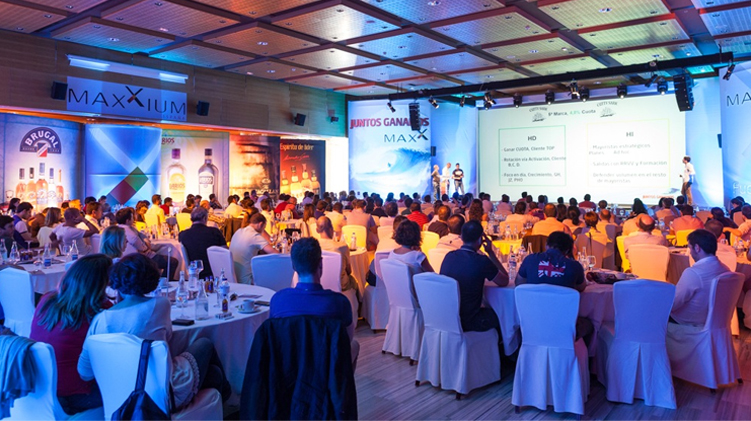

Introduction:
Corporate events serve as dynamic platforms for businesses to connect, innovate, and thrive in today's competitive landscape. From the bustling energy of trade shows to the thought-provoking discussions of seminars, these gatherings encapsulate the essence of modern business culture. They're not just about networking or brand promotion – they're about forging meaningful connections, fostering collaboration, and driving success.
In this guide, we'll embark on a journey to uncover the diverse world of corporate events, exploring their significance, types, and tips for hosting memorable gatherings that leave a lasting impact. So, buckle up and get ready to dive into the exciting realm of corporate events!
What is Corporate Events:
Corporate events encompass a wide range of gatherings organized by businesses for various purposes. These events serve as opportunities for companies to engage with stakeholders, showcase their products or services, foster team collaboration, and enhance brand visibility. Whether large-scale conferences or intimate board meetings, corporate events play a crucial role in shaping organizational culture and achieving business objectives.
Types of Corporate Events:
Seminars and Conferences:
Seminars and conferences are educational events that bring together industry experts, thought leaders, and professionals to share knowledge, insights, and best practices. These events often feature keynote speakers, panel discussions, and breakout sessions on relevant topics. Seminars and conferences provide valuable learning opportunities for attendees and serve as platforms for networking and professional development.
Trade Shows or Expos:
Trade shows or expos are large-scale events where businesses showcase their products or services to potential customers, partners, and industry professionals. These events offer exhibitors the opportunity to generate leads, build brand awareness, and network with key stakeholders. Trade shows often feature exhibitor booths, product demonstrations, and educational seminars, attracting attendees from across the industry.
Corporate Board Meetings:
Corporate board meetings are formal gatherings attended by members of a company's board of directors to discuss and make decisions on strategic matters. These meetings play a crucial role in corporate governance, as board members oversee the company's overall direction, performance, and compliance with regulations. Board meetings typically cover agenda items such as financial reports, strategic planning, and corporate governance issues.
Team-Building Events:
Team-building events are designed to foster collaboration, communication, and camaraderie among employees. These events often include activities such as outdoor adventures, problem-solving challenges, and group exercises aimed at building trust and strengthening relationships within teams. Team-building events contribute to a positive work environment, improve morale, and enhance productivity.
Product Launch:
Product launches are events organized to introduce a new product or service to the market. These events are designed to generate excitement, create buzz, and attract media attention. Product launches often feature product demonstrations, presentations, and networking opportunities for stakeholders such as customers, investors, and media representatives. A successful product launch can significantly impact the success of a new product in the marketplace.
Holiday Events:
Holiday events are celebratory gatherings organized by companies to mark special occasions such as seasonal holidays, company milestones, or employee appreciation days. These events provide an opportunity for employees to relax, socialize, and celebrate achievements together. Holiday events often include festive decorations, themed activities, and entertainment to create a memorable experience for attendees.
Tips for Hosting a Successful Corporate Event:
- Define clear objectives and goals for the event.
- Understand the needs and preferences of your target audience.
- Plan and organize logistics well in advance, including venue selection, catering, and audiovisual requirements.
- Promote the event effectively through various channels, including social media, email marketing, and networking platforms.
- Engage attendees with interactive elements such as Q&A sessions, networking opportunities, and live demonstrations.
- Collect feedback from attendees to evaluate the success of the event and identify areas for improvement.
Elements to Consider:
- Budget: Determine the budget for the event and allocate resources accordingly. Understanding your brand's essence will guide the development of a cohesive corporate identity.
- Venue: Choose a suitable venue that aligns with the theme and objectives of the event.
- Agenda: Develop a detailed agenda outlining the schedule and activities for the event.
- Branding: Incorporate branding elements such as logos, colors, and messaging to reinforce brand identity.
- Technology: Utilize technology solutions such as event management software, mobile apps, and virtual event platforms to enhance the attendee experience.
- Safety and Security: Implement measures to ensure the safety and security of attendees, staff, and participants.
Conclusion
Corporate events play a crucial role in driving business growth, fostering relationships, and enhancing brand visibility. By understanding the different types of corporate events and implementing effective event management strategies, businesses can maximize the impact of their gatherings and achieve their objectives. As a leading provider of event management services, Rishiraj Media is committed to helping businesses plan and execute successful corporate events that leave a lasting impression. Contact us today to learn more about our services and how we can support your next corporate event.